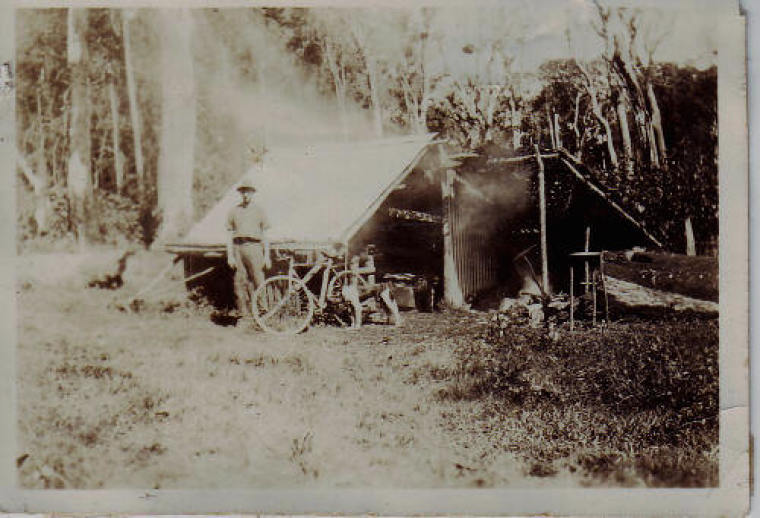
The conditions of the Government lease were that the natural rainforest be cleared to allow the cattle to graze. Seymour Tronson had the support of his family and was innately an innovator, like many Aussie farmers, so he excelled at developing and running his own dairy farm.
History of Aussie farmers' innovations
As stated in the website 'Early Innovations in Australia': "The first problems to overcome in the harsh new land was the provision of adequate food and shelter. Not surprisingly therefore, many of the country's early innovations were to do with agriculture and food processing. Although many ideas, processes and tools were originally imported and adapted to local conditions and requirements, a good number were world first innovations that made significant impact on agricultural practices globally." www.apc-online.com
Some famous Aussie inventions mentioned are: The grain-stripper for wheat, followed by the combine harvester; Production of ice through evaporation of ether; The stump-jump plough; The electric drill; A mechanical evaporator for drying fruit; Breeding of disease-resistant wheat strains; A mechanical rotary hoe; The pedal wireless (invaluable for contacting the Flying Doctor); The 'Ute'; Shrink-proof woollen fabrics, followed by permanent-creases in trousers, Self-twisting system of spinning woollen yarn; The Victa lawn mower; The Hills rotary clothes-hoist …etc...
Farmers are instinctive 'greenies'
Mark Tronson's family moved off the farm when Mark was a lad; but many years later after visiting his old friends, his father lamented that the clearing of the land had not been good for the environment. He noted that the natural fresh water springs had dried up, and the formerly rich soils were degraded and eroded.
Seymour would have preferred to care for the land; but before and during the War, his priority was to clear the land and produce the milk. Being a Christian gentleman, he would have heeded Proverbs 27:23-24 "Be thou diligent to know the state of thy flocks, [and] look well to thy herds. For riches [are] not for ever: and doth the crown [endure] to every generation?"
Today, thanks to the innovations of individuals and the national research organisation, CSIRO which was originally set up to help the agricultural industry, farmers can both improve the environment of their own beloved land and be efficient producers of agricultural produce. There is no longer any need to sacrifice one for the other.
You can read their own stories on the 'Target 100' website, which tells of the aims to deliver sustainable cattle and sheep farming by 2020. (www.target100.com.au)
Mark Tronson has read two recent articles that illustrate more ways that farmers are rising to these new challenges.
Rice grown in Australia uses less water
In 2008, during the recent long drought, twenty farmers started a trial growing rice with only natural rainfall, on the lush far north coast of NSW. This season, there has been a successful harvest of 250 hectares, and the rice processed at two new mills.
Although the production is a little less than for irrigated crops, it is a record for non-irrigated rice and is kinder to our continent of variable rainfall. One of the farmers, Tony Carusi, boasts about this on his OzRice website. Today, irrigation water is not only a scarce resource but is subject to much political and scientific controversy.
Birdlife returns to regenerated farmland
Meanwhile, ecologist Damian Michael has been conducting a decade-long survey of birds on 193 farms from southern Queensland through to northern Victoria.
He that there are more birds where the farmers have replanted native woodlands, or reduced livestock grazing to encourage regrowth. Previously, these have been some of the most cleared and degraded landscapes in the world.
This study is among the first to actually measure the success of landcare initiatives put in place by successive Governments. Different bird species prefer different types of woodland, so farmers are encouraged to manage their property the way that is most suitable for them.
The program leader, Dr David Linenmayer from the Australian National University, believes that the fate of many endangered birds can be reversed. He said: "It is a really positive result. It shows us how we can make a difference." www.smh.com.au
Most farmers, like Mark's late father, understand the need to care for their own land to enable regeneration so the land can be productive for generations to come.
Dr Mark Tronson is a Baptist minister (retired) who served as the Australian cricket team chaplain for 17 years (2000 ret) and established Life After Cricket in 2001. He was recognised by the Olympic Ministry Medal in 2009 presented by Carl Lewis Olympian of the Century. He has written 24 books, and enjoys writing. He is married to Delma, with four adult children and grand-children.
Mark Tronson's archive of articles can be viewed at www.pressserviceinternational.org/mark-tronson.html